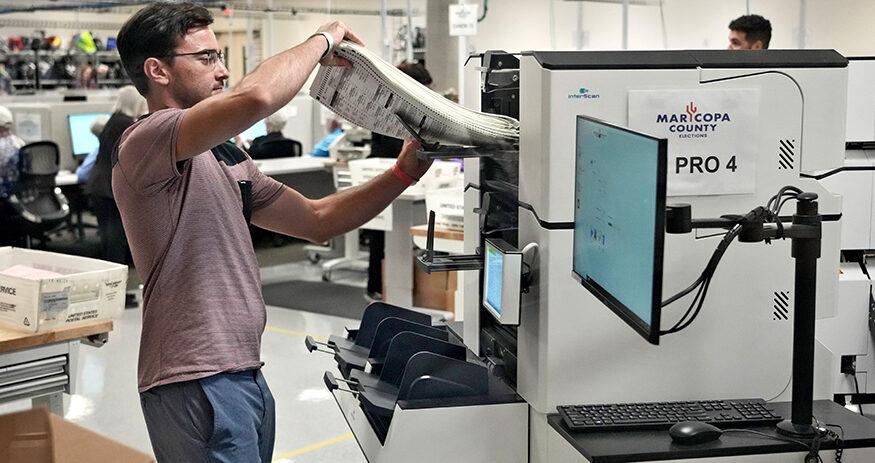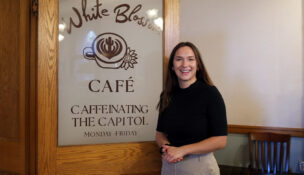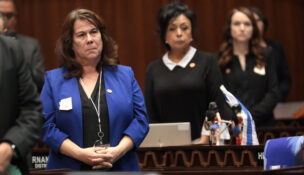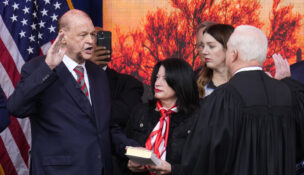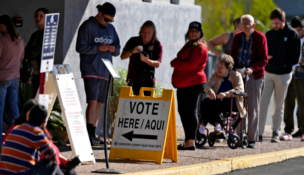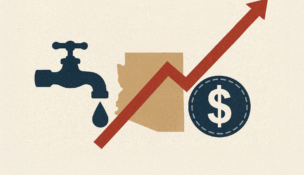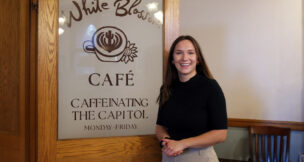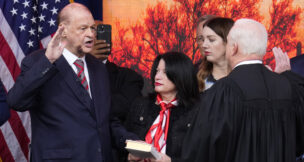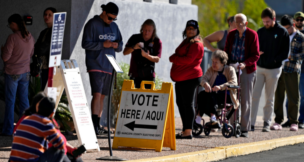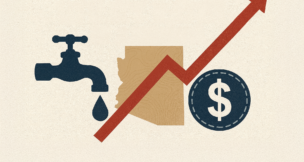Republicans to strive for speedy election system like Florida
Jakob Thorington Arizona Capitol Times//January 11, 2025//
Republicans to strive for speedy election system like Florida
Jakob Thorington Arizona Capitol Times//January 11, 2025//
Speeding up Arizona’s election results will be a major policy goal for Republican leaders at the Legislature this session.
Legislative leaders in the House and Senate have outlined a plan to make the state’s election systems similar to Florida, with the intent of having nearly all votes tabulated by the end of election night.
The proposal is being pushed by many Republicans, notably Senate President Warren Petersen, R-Gilbert. Petersen prefiled SB1011, which aims to eliminate mail ballots delivered on Election Day, or so-called “late earlies.” Election officials attribute delays in election results to late earlies because of the time it takes to verify signatures.
The measure is also supported by Maricopa County Board of Supervisors Chairman Thomas Galvin, who said on Jan. 6 he plans to have the county’s election system undergo a comprehensive audit conducted by a reliable party.
“People want election results faster and when misinformation has time to fester, it breeds mistrust in our system,” Galvin said.
The proposed law would move the deadline to drop off an early ballot at a polling place to 7 p.m. the Friday before Election Day instead of on Election Day. It also proposes to eliminate emergency voting centers to instead just expand early voting to include the Monday and weekend before an election.
If the bill becomes law, anyone who tries to deliver a late early ballot on Election Day would be required to present identification and sign an affidavit in order to turn in their ballot.
Galvin said he hopes the proposal can gain bipartisan support in the Legislature, but Democrats want to ensure any election bill doesn’t make it more difficult for people to vote. Galvin’s vision is to have 95% of votes tabulated on election night.
“Faster election results should not come at the expense of voters’ rights,” said Gov. Katie Hobbs’s spokesman Christian Slater in a written statement. “Governor Hobbs is open to proposals to speed up the counting process, but any solution must protect Arizonans’ freedom to make their voices heard at the ballot box. She remains committed to a voting process that maintains accessibility and integrity for all Arizona voters and guarantees safe, secure and fair elections.”
There is growing momentum for the idea. A recent poll from Noble Predictive Insights that showed nearly 52% of respondents expressed frustration with how long it takes the state to finalize election results, despite having increased confidence in the election process.
Republicans have also been united on the issue. Political consultant Doug Cole said that aspect was particularly key since there has been infighting within the party in recent years on trust in elections.
“There’s a lot of parties that have not been on the same page recently that are coalescing around the idea,” Cole said.
Rep. Alexander Kolodin, R-Scottsdale, said Jan. 8 he’s expecting the House to have an ad hoc committee specifically examining Florida’s election model. The bill will get a hearing in the Federalism, Military Affairs and Elections Committee, but he said because of the complexity of the issue, he wants to work the bill out in multiple hearings with the ad hoc committee.
“A committee is supposed to do substantiative work on a bill,” Kolodin said. “Improve the bill and then present it on the House floor as something pretty close to a finished work product that the members can have confidence it’s been properly vetted and thoroughly thought through.”
SB1011 will likely be a major negotiating piece between Republican leaders and the Governor’s Office during the legislative session. Another Republican idea that Hobbs won’t consider is banning vote centers.
Rep. Rachel Keshel, R-Tucson, prefiled HB2017, which would prohibit a county board of supervisors from authorizing the use of voting centers. Voting would be done at the precinct level with no more than 1,000 registered voters per precinct.
Keshel had a similar bill last year, but it died in the Senate because then-Sen. Ken Bennett, R-Prescott, voted against the measure.
Bennett isn’t returning this session and Republicans have gained a seat in the Senate. Hobbs will most likely veto the bill if it makes it to her desk, but Keshel has a similar measure in the form of a concurrent resolution, HCR2002, which bypasses the governor and goes to the ballot, allowing voters to decide if the measure should become law.
Cole said he doesn’t expect voters to support the measure if it makes it to the ballot.
“Generally, the public wants easy access to voting,” Cole said. “Especially here in Maricopa County, voting centers have proven to be very popular and effective.”
Cronkite News reported in November that the county had 246 vote centers during the general election, and wait times at vote centers were on average 10 minutes to 11 minutes.

